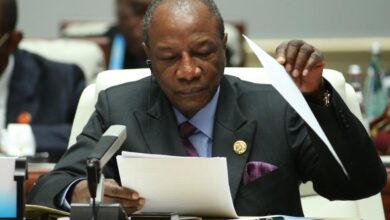Cape Verde
Cape Verde’s Jose Maria Neves Gets Clear Majority In Presidential Election Results

Cape Verde’s opposition candidate Jose Maria Neves has won the presidential elections held on Sunday, according to provisional results published on an official website, reported Reuters. The turnout for the election was 48.3%.
As per the results from 97% of polling stations, the 61-year-old Neves, a member of the African Party for the Independence of Cape Verde (PAICV) and head of government from 2001 to 2016, won 51.5% of the vote, an absolute majority needed to be elected in the first round.
Seven candidates are bidding to replace President Jorge Carlo Fonseca, who is not allowed to serve more than two consecutive terms. Fonseca was the fourth president in Cape Verde’s history, since the country’s independence from Portugal in 1975.
Mr. Neves was found to be well ahead of his main rival candidate Carlos Veiga of the Movement for Democracy party. Mr. Veiga, who served as Cape Verde’s prime minister from 1991 to 2000, got 42.6% of the vote, according to the same results. He also lost in 2001 and 2006 to the PAICV-backed candidate, Pedro Pires.
The abstention rate reached 51.7% of registered voters.
Mr. Veiga admitted defeat in front of the television and even congratulated his opponent.
According to Cape Verde’s Constitution, the election winner must secure more than 50% to avoid a second-round run-off. As Mr. Neves has secured more than 50% of the votes, there won’t be any second round of voting.
Provisional results will now be certified by the national electoral commission in the coming days.
Mr. Neves takes over a country, which is home to about 550,000 people, with one of the highest GDP per capita in West Africa and years of sustained growth.
But, Cape Verde’s economy, which is 25% dependent on mainly European tourism and also on remittances and aid from international institutions, has been hit hard by Covid-19.


